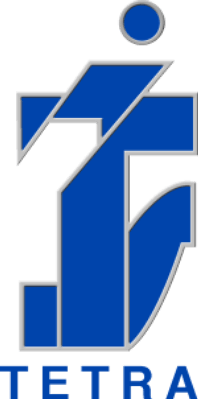Introduction
Amidst the rapid evolution of the business landscape, where change is constant and competition fierce, delivering exceptional customer support has emerged as a defining factor for success. In this dynamic environment, businesses strive not only to meet but to exceed customer expectations, recognizing that outstanding service is key to retaining loyal customers and gaining a competitive edge. At the heart of efficient customer service management lies Help Desk software—a versatile and indispensable tool that streamlines support operations, enhances communication, and ensures the timely resolution of customer inquiries.
This article embarks on a comprehensive exploration of Help Desk software, diving deep into its multifaceted benefits and unique attributes that make it a cornerstone of success for businesses across industries and of all sizes. From startups navigating their initial forays into customer service to established enterprises managing vast support ecosystems, Help Desk software stands as a reliable ally in delivering unparalleled customer experiences and driving organizational growth.
What is Help Desk software and what are its benefits?
Help Desk software serves as a centralized platform for managing customer inquiries, resolving issues, and delivering timely support services. It enables businesses to streamline communication channels, track customer interactions, and prioritize and assign tasks efficiently. By consolidating support requests and automating repetitive tasks, Help Desk software empowers teams to deliver consistent and personalized support experiences.
The benefits of Help Desk software encompass a wide range of advantages that contribute to the overall success and efficiency of businesses.
Firstly, it plays a pivotal role in enhancing customer satisfaction by ensuring prompt responses and resolutions to inquiries. By providing timely assistance, Help Desk software fosters positive relationships with customers, thereby nurturing loyalty and trust. Customers appreciate the efficiency and effectiveness of support provided through Help Desk software, leading to higher satisfaction levels and an increased likelihood of repeat business.
Moreover, Help Desk software catalyzes improving team collaboration and productivity within organizations. By centralizing communication channels and streamlining workflows, it creates a cohesive environment where support agents can work together seamlessly to address customer needs. Real-time insights into customer interactions further enhance collaboration by providing valuable context and information to team members. This collaborative approach not only accelerates issue resolution but also promotes knowledge sharing and skill development among team members.
Additionally, Help Desk software empowers businesses to monitor performance metrics and track key indicators of success. By analyzing data related to response times, resolution rates, and customer feedback, organizations can identify areas for improvement and implement targeted strategies to enhance service quality. This continuous monitoring and analysis enable businesses to proactively address customer needs and adapt to changing market trends. Ultimately, Help Desk software facilitates a data-driven approach to customer support, ensuring that organizations can consistently deliver high-quality service and exceed customer expectations.
What are the unique differentiators in choosing Help Desk Software?
- Customization and Scalability: One of the key differentiators in choosing Help Desk software is its ability to adapt to the unique needs and scale of businesses. Whether a small startup or a large enterprise, businesses require flexibility in customizing workflows, ticketing processes, and automation rules to align with their specific requirements. Look for Help Desk software that offers robust customization options and scalability to support future growth and evolving business needs.
- Multichannel Support: In today's omnichannel landscape, customers expect seamless support across various communication channels, including email, phone, chat, social media, and self-service portals. Choose Help Desk software that provides multichannel support capabilities, enabling businesses to manage inquiries from diverse channels efficiently. Seamless integration with popular communication platforms ensures a unified and consistent support experience for customers.
- Automation and AI Capabilities: Automation and artificial intelligence (AI) have become indispensable components of modern Help Desk software. Look for solutions that leverage automation to streamline repetitive tasks, such as ticket routing, categorization, and response generation. AI-powered features, such as chatbots and predictive analytics, enhance efficiency, enable proactive support, and personalize customer interactions, driving higher satisfaction and retention rates.
- Integration Ecosystem: Integration capabilities are vital in extending the functionality of Help Desk software and integrating with existing tools and systems within the organization's ecosystem. Choose a Help Desk solution that offers seamless integrations with CRM platforms, project management tools, collaboration software, and other business-critical applications. This enables a cohesive workflow, improves data visibility, and enhances overall operational efficiency.
- Reporting and Analytics: Comprehensive reporting and analytics capabilities are essential for monitoring Help Desk performance, identifying trends, and measuring key performance indicators (KPIs). Look for software that provides customizable dashboards, real-time analytics, and advanced reporting features. Insights into metrics such as ticket volume, resolution time, customer satisfaction scores, and agent performance empower businesses to optimize processes, drive continuous improvement, and make informed strategic decisions.
Conclusion
In conclusion, Help Desk software plays a pivotal role in enabling businesses to deliver exceptional customer support experiences and streamline service management processes. Its benefits extend beyond resolving customer inquiries efficiently to driving customer satisfaction, improving team collaboration, and enabling data-driven decision-making. When choosing Help Desk software, businesses should consider unique differentiators such as customization, multichannel support, automation, integration capabilities, and reporting functionalities. By selecting the right Help Desk solution that aligns with their specific needs and objectives, businesses can elevate their customer support capabilities and gain a competitive edge in today's dynamic business landscape.





